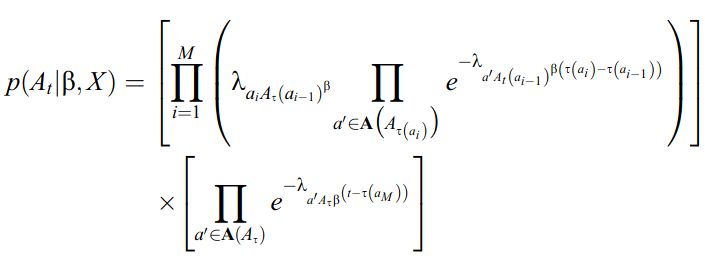Demonstrating the Utility of Egocentric Relational Event Modeling Using Focal Follow Data from Congolese BaYaka Children and Adolescents Engaging in Work and Play
Temporal aspects of child and adolescent time allocation in diverse cultural settings have been difficult to model using conventional statistical techniques.

Temporal aspects of child and adolescent time allocation in diverse cultural settings have been difficult to model using conventional statistical techniques. A new statistical approach, Egocentric Relational Event Modelling (EREM), allows for the simultaneous modelling of activity frequency, duration, and sequencing. Here, EREM is applied to a focal follow dataset of Congolese BaYaka forager child and adolescent play and work activities. Results show that, as children age, they engage in less frequent and extended play bouts and more frequent and extended work bouts. Bout frequency and duration were a more sensitive measure for early sex differences than overall time allocation. Sequential patterns of work and play suggest that these activities have short-term energetic trade-offs. This article demonstrates that EREM can reveal stable and variable patterns in child development.
Observational studies of children’s time allocation demonstrate that age, sex, family circumstance, and culture influence activity budgets (Blurton Jones 1972; Bock and Johnson 2004; Gosso 2010; Munroe et al. 1984; Whiting and Whiting 1975). However, temporal aspects of behavior have been difficult to model using conventional statistical techniques. Here, we demonstrate the applicability of the Egocentric Relational Event Model (EREM) using a focal follow dataset of BaYaka child and adolescent play and work activities (Butts 2008; Marcum and Butts 2015). While EREM is not the only statistical framework to accommodate sequential data, it is unique in the flexibility with which it can simultaneously model the probability and duration of multiple events.
Publication: Kate Ellis-Davies, et al., Demonstrating the Utility of Egocentric Relational Event Modeling Using Focal Follow Data from Congolese BaYaka Children and Adolescents Engaging in Work and Play, Field Methods (2023). DOI: 10.1177/1525822X20987073
Original Story Source: Max Planck Institute for Evolutionary Anthropology

 Alerts Sign-up
Alerts Sign-up